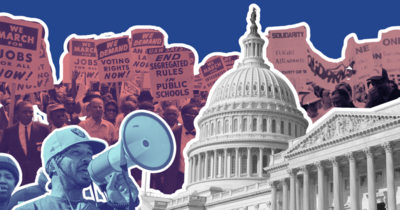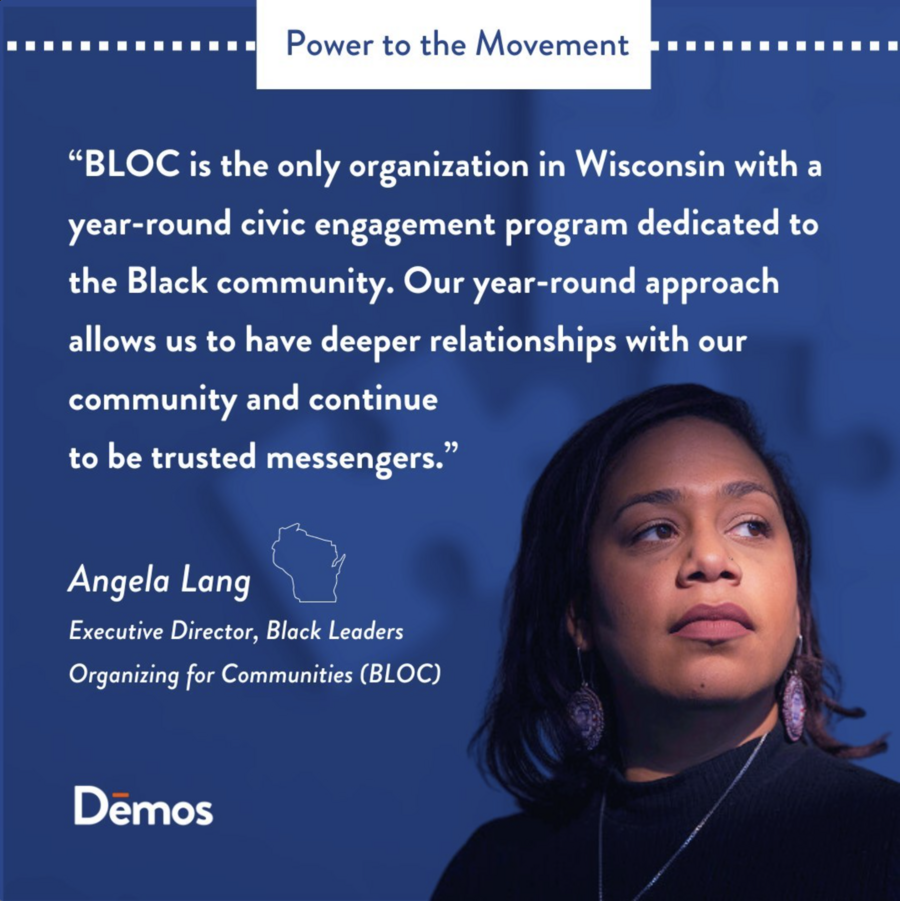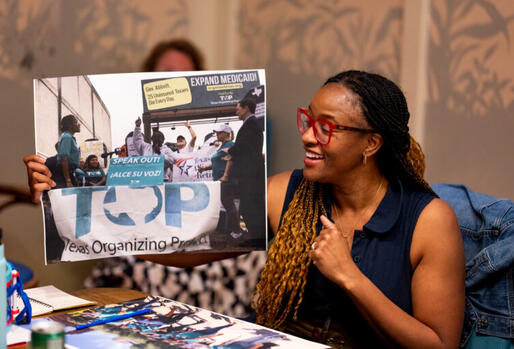
Black History’s Contributions to Our Economy, Democracy, and Movement
Black History Month is an opportunity to look to our past for lessons on our future path to justice, economic security and stronger democracy everyone deserves.

Black History Month is a yearly invitation to recognize and honor Black people's contributions to society. At Dēmos, we’ve spent the month of February recognizing Black people’s efforts to build power for our democracy, economy, and our collective well-being.
And this month, we’re reminded of these enduring truths:
1. Efforts to secure full political participation help us secure what our communities deserve.
As Anoa Changa explained earlier this month, the enduring fight for full political participation extends from historic trailblazers like Ida B. Wells-Barnett and Fannie Lou Hamer to contemporary grassroots organizations like BLOC and Detroit Action.
2. The fight for workers’ rights is inextricably linked to the fight for civil rights.
We see time and again that you cannot stand for one without the other, as the racial wage gap and discriminatory workplace practices continue threatening progress.
It is why civil rights leaders like A. Philip Randolph have marched alongside workers from all walks of life, to demand fair and equitable treatment for Black and brown working people. Workers’ rights are civil rights.
3. The future of public goods like public housing and public banks is intertwined with fixing the racism inherent in our systems.
In December, Dēmos’ Taifa Smith Butler and Udochi Onwubiko held a Fireside Chat with journalist, author, and activist Malaika Jabali on her recent book, It’s Not You, It’s Capitalism: Why It’s Time to Break Up and How to Move On. The three discussed the dual problems of capitalism and racism and how we can build a better future where we all thrive.
4. Achieving a just, inclusive, multiracial democracy requires our collective stewardship.
American history is filled with examples of courageous advocates whose contributions made a difference yet took decades to be widely recognized.
Our team is reflecting on two pieces from Dēmos President Taifa Smith Butler, grounding Black women’s leadership in the fight for an equitable democracy and economy. Writing for Ms. Magazine, Taifa explained why it’s time to center Black Women and bring a racial and gender justice lens to our policy work. Earlier this month, Taifa's essay on voting access was published in Dr. Keisha Blain’s anthology, Wake Up America: Black Women on the Future of Democracy. She recently joined Dr. Blain and former Minnesota state legislator Ruth Richardson in Harrisburg to discuss her essay on voting access and the future of democracy.
Watch the full Wake Up America booktalk
As a think-tank committed to racial equity, we see Black History Month as an opportunity to look to our past for lessons on our future path to justice, economic security and stronger democracy everyone deserves.
This year is no different in reminding us of the many ways in which Black History is power.



